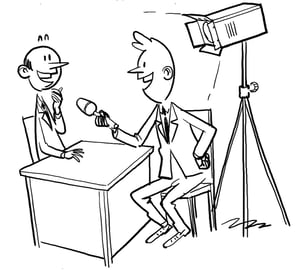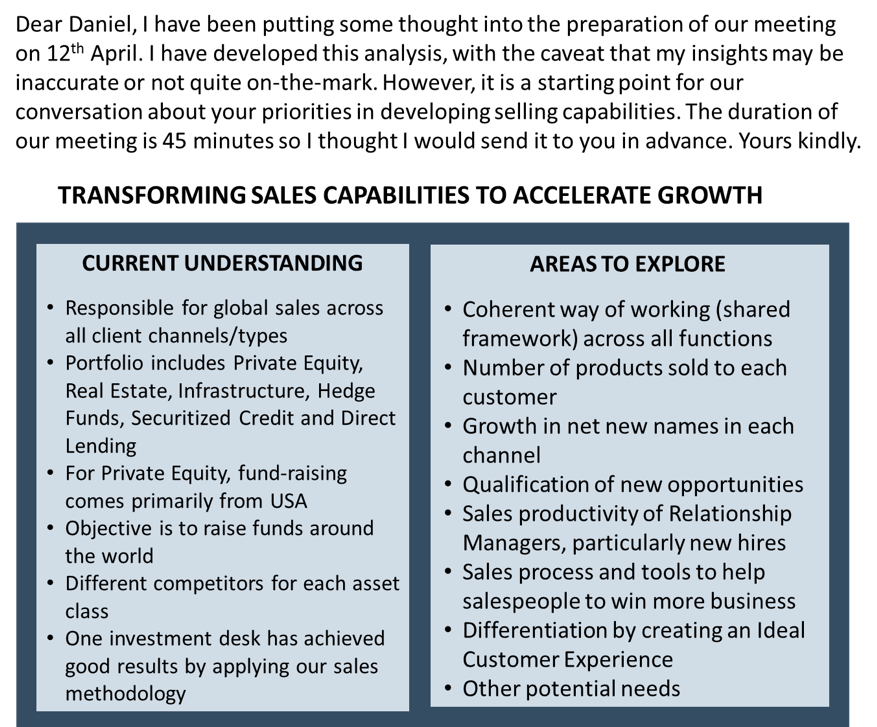 Asking questions is a vital skill but I believe it is being used poorly and this is undermining the level of trust between salespeople and their customers.
Asking questions is a vital skill but I believe it is being used poorly and this is undermining the level of trust between salespeople and their customers.
This issue was brought to my attention during a recent conversation with someone who is selling to me.
Are the days of SPIN over?
Let me tell me about my experience. I am currently evaluating a software to help improve the coaching skills of sales managers and the quality of their teams’ sales conversations. The salesperson, let’s call him Dan, at the software company is a very competent and likeable person.But every time Dan uncovers a problem I have in areas where he offers solutions, he asks me what the impact of the problem is and what benefits could be derived if the problem was resolved. This well-known questioning technique has on two occasions had a negative impact on the quality of our conversation. This is because the potential buyer (in this case me) feels that they are being sold to.
At the outset of our third conversation, I asked Dan if I could share my feedback with him. He told me that they were expected to ask Situation, Problem, Impact and Need-Payoff questions to uncover needs and increase the perceived urgency. Based on my feedback Dan continued the conversation in an authentic way - without the questioning technique. It was by far the best of the three conversations.
The Educated Buyer
One comment Dan made was that I was, in his words, an Educated Buyer. This is probably true. But I can say with confidence that since the origins of SPIN most customers, by now, have become Educated Buyers.
So where does this leave the sales person who needs to ask questions to understand the real needs of the customer?
Earning the right to ask questions
You have to earn enough trust and credibility before you start asking questions. The research we did in conjunction with Harvard Business Manager shows that 63% of customers are dissatisfied with the level of knowledge sales people have of their business and industry.
The tool you need to earn the right to ask questions is the Appointment One- Pager, or at least the top half of it. It helps you to show the customer that you have knowledge and understanding of their business and their market and that you have done your homework. An important point here is that you are not claiming to know everything - you are setting out your understanding and asking the customer to validate it.
Putting the theory into practice
Start the conversation by validating your current understanding about the prospect’s business and situation in your business domain as well as the potential challenges you typically encounter in the prospect’s industry.
You could even send this information before the meeting to demonstrate your professionalism and set the stage. Below is an example for a first visit I recently conducted with the global head of sales at a leading global asset manager.

The effort required to prepare this paid off. Daniel took the time to correct my current understanding and his potential needs. In the meeting itself, the prospective customer openly talked about his goals and challenges, and it wasn’t necessary to ask that many questions.
The Ideal Customer Experience
You must strive for ICE not NICE (Not an Ideal Customer Experience). That means doing the preparation to show you have a level of understanding but asking your customer to validate it. This process helps to establish the essential trust and credibility.
Once you have earned the trust, don’t blow it by using questioning techniques. Stay authentic and of course ask questions but focus on making your sales approach an Ideal Customer Experience.
Questions to ask yourself
- Do you prepare for meetings well enough?
- Does the way you ask questions in meetings follow a sales technique?
- Would you like to be sold to in this way?
